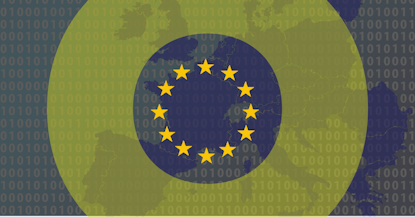Fair and transparent public procurement rules are central to the integrity of the EU’s single market

The Covid-19 pandemic has reminded us just how vital procurement is to the delivery of goods and services to Europe’s citizens and a series of scandals (see examples from Europol and OCCRP here and here) showed just how fragile and easily abused the rules still are.
As the EU moves from the COVID-19 crisis response to economic recovery, a coalition of leading open procurement champions including OCP has written to the European Commission to lay out how further procurement reforms can unlock innovation, improve competitiveness, and support the devastated small business sector whilst protecting public integrity.
Read the full letter here. Signatories include: Open Contracting Partnership, Access Info Europe, Epanstwo Foundation Poland, Fundación Ciudadana Civio Spain, Funky Citizens Romania, K-Monitor Hungary, Open Knowledge Sweden, Parliament Watch Italy, Tenders Exposed Netherlands, Transparency International EU, Transparency International Lithuania, Transparency International Portugal.
Our recommendations are:
- The European Commission (DG CONNECT) should mandate Member States to publish all procurement-related data (from planning to implementation, including all bids and information below TED and national thresholds) in consistent, standardized and comparable open formats by including it under the Annex I of the Public Sector Information Directive, currently under development. More detailed information can be found in this public letter.
- The European Commission (DG GROW) should do everything within its power to ensure that the newly introduced Tenders Electronic Daily (TED) e-forms are implemented in the fullest scope possible, allowing the Member States to collect full, high-quality and structured procurement information. This should include encouraging countries to use e-forms for below threshold procurement as well as collecting and publishing as many optional data fields as possible. For publication purposes, we recommend using the Open Contracting Data Standard (OCDS) and accompanying guidance on using OCDS for TED data publication.
- The European Commission (DG ENVI) should urge all Member States to use open data to promote and implement Green Public Procurement (GPP). The GPP is fully aligned with the European Green Deal and the 2014 Procurement Directives which enable public authorities to take environmental considerations into account. Transparent and open data will allow public authorities to procure goods, services and works with a reduced environmental impact, and provide financial savings and reduce contracts’ costs. The GPP can be applied to contracts both above and below the threshold for application of the procurement directives.
- The European Commission should support the efforts to analyze the currently existing COVID-19 related information to be able to draw all the lessons about procurement from the current crisis. One example of best practices are the four joint EU procurements for medical equipment.
- The European Council should include open contracting data as an additional anticorruption mechanism, included in the Digital Europe program for the period 2021-2027, under paragraph 2.3. Measures to prevent fraud and irregularities. Accessible and published data can also assist in identifying red flags from the early procurement stages.
- The European Council should set the tone for the rest of the EU, by including open contracting under the digital single market for Europe policy, and into the recovery policy agenda as part of the debate on the digital priorities in the COVID-19 recovery.
- The European Parliament should contribute to a pan-European discussion and help put open contracting on the agenda, encouraging the European Commission and the Council to act promptly.